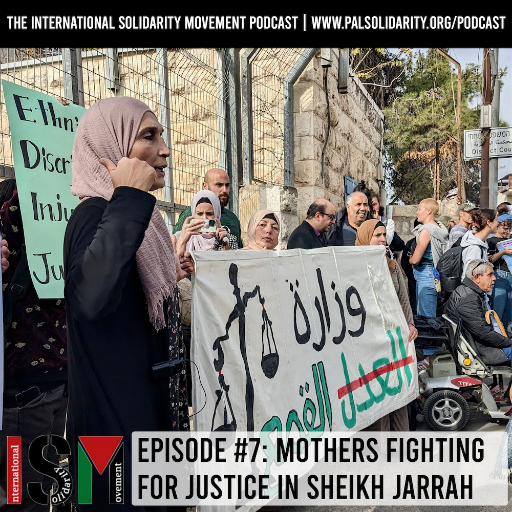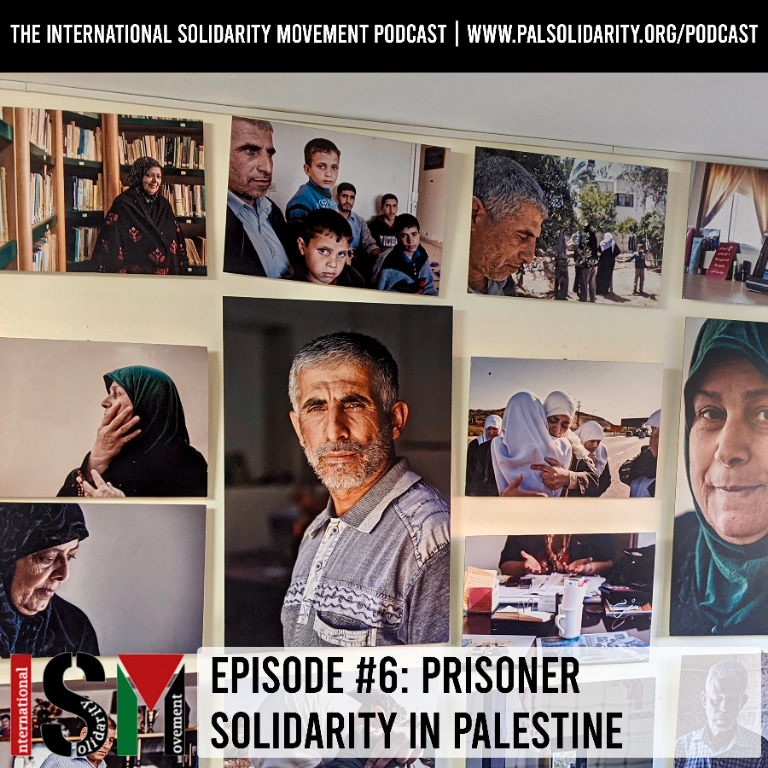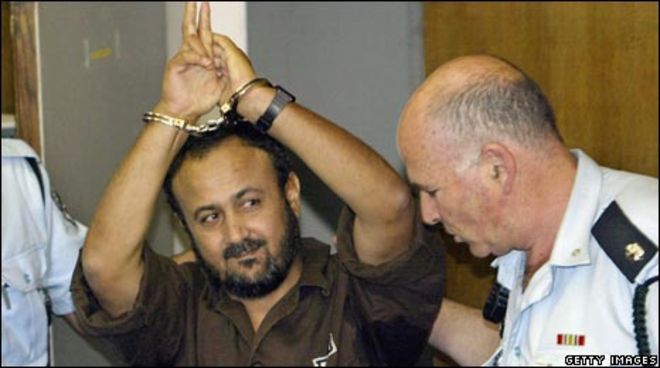Tag: political prisoners
-
The International Solidarity Movement podcast episode seven: Mothers fighting for Justice in Sheikh Jarrah
In this episode, we share an interview with Um Ramadan. We met her at a demonstration outside the district court in Jerusalem in December 2022. Alongside other mothers, she is protesting her son’s imprisonment. In this moving interview, she talks about the conditions her son is kept in and how mother’s are organising to support…
-
The International Solidarity Movement podcast episode six: Prisoner Solidarity in Palestine
This episode has been released for Palestinian Prisoner’s Day. All around the world people are highlighting the conditions of people incarcerated by the Israeli occupation. To mark this day we bring you an interview with Milena Ansari, an incredible organiser from Addameer. Adameer in arabic means conscience. Adameer is a prisoner support and human rights…



